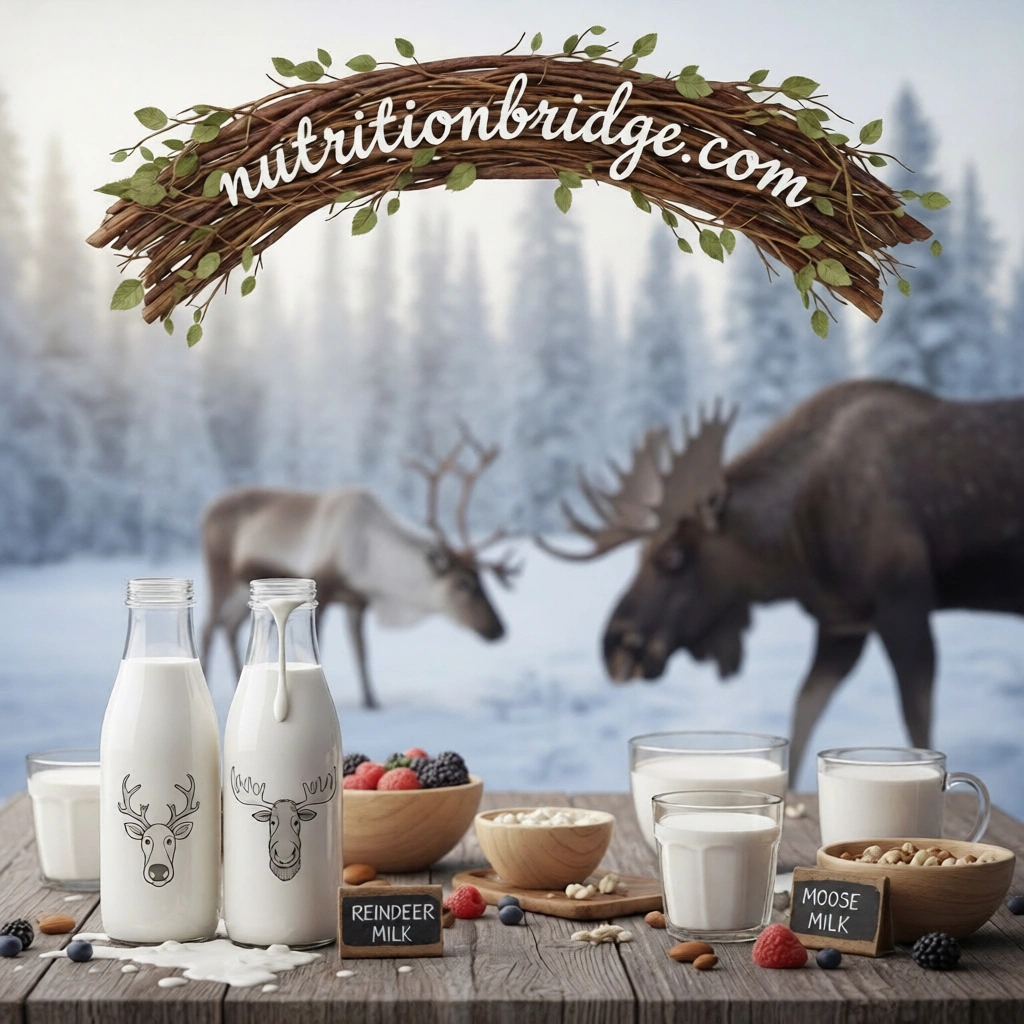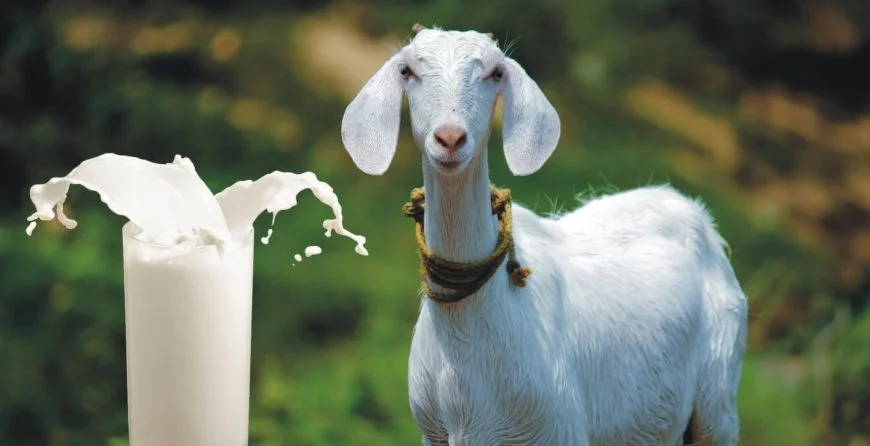What you Want, Find Here ↓
ToggleReindeer and Moose Milk Benefits
Reindeers and moose are the sub species of deer. They are mostly found in northern (cold) areas of world like Eurasia & taiga region, where cows can’t survive. Reindeer and moose can survive here because of there high protein and fat content in their bodies.

The fat content in Reindeer milk significantly increases as lactation progresses. The milk obtain from the first part of Lactation is drunk, milk obtain from mid-Lactation is used for cheese-making while milk obtain from late Lactation is churned to produce butter.
Water is the main component in all type of milks, ranging from an average of 68 percent in reindeer milk than in donkey milk which is 91%.
Nutrition profile:
Nutrient content in 100g of reindeer milk:
| Calories | 819kJ |
| Water | 61.9g |
| Total protein | 7.5g |
| Total fat | 10.2g |
| Lactose | 1.2g |
| Ash | 1.2g |
Health benefits:
- Good for Lactose intolerant patient:
Lactose intolerant patient can also consume it. Because both reindeer & moose milk are low in lactose as compared to cow’s milk which contains its half value. For example;- the lactose content in 100g of reindeer milk is 2.6-2.9g compared with cow milk which has 4.7g. But the lactose content in 100g moose milk is as low as 0.6g. One report shows that Saami people who are Reindeer herders are actually lactose intolerant. Hence, Reindeer milk is particularly suitable as part of their diet
- Rich source of Selenium:
Moose milk contains notable amount of selenium. A 100g of moose milk contains about 11µg of selenium. FAO and WHO report shows that one cup (250ml) moose milk provides the recommended nutrient intake of 17microgram for 1-3year old child. Selenium acts powerful anti-oxidants, prevents against cancer, reduce risk of heart diseases, boosts immune system & may helps in reducing asthmatic symptoms.
- Rich source of Polyunsaturated fatty acids:
Although the short chain fatty acid content of moose milk is low as compared to cow’s milk but it is rich in polyunsaturated fatty acid. For e.g;- Few reports shows that 100g of moose milk contains 53g of short chain fatty acids which is lower than cow milk(65-75g/100g). But the PUFA content found in 100g of moose milk is 14g than cow’s milk which has 6g in 100g of milk.
Do you know PUFA is very helpful in lowering the cholesterol levels of body, improve vascular function & lowers the blood pressure etc.
- Highly proteinaceous:
The protein content found in reindeer milk is 4 times high as compared to cow milk. For example;- A 100g of reindeer milk contains13g of protein than cow milk which has 3.3g in 100g. The high protein and fat content make it energy dense. Both these nutrients help the calf to survive in the harsh Arctic winter. The high protein content means also abundant in amino acids. Even though Reindeer milk is 2-6times higher in amino acids than cow milk. As it is a best protein supplement so good for Athletes in building muscle mass.
It also has 6 times more fat than cows milk which has 3.3g of fats while reindeer milk has 21.5g in 100g of milk
- High mineral content:
Both Reindeer and moose milk has a high mineral content. Reports shows that 100g of moose milk contains 358mg of Ca, 158mg of sodium & 159mg of phosphorus. Calcium and phosphorus are good for healthy bones while sodium regulates electrolyte balance in body.
Products Made from Reindeer Milk:
Reindeer milk is mostly used in summer diet of herders. It is can be made into
- Cheese
- Butter
- Sour cream
- Also dried in curd form.
Source:
http://www.fao.org/3/i3396e/i3396e.pdf
Holand, O., Gjostein, H. & Nieminen, M. 2006. Reindeer milk. In Y.W. Park &
G.F.W. Haenlein, eds. Handbook of milk of non-bovine mammals. Ames, IA, USA,
Blackwell Publishing Professiona




